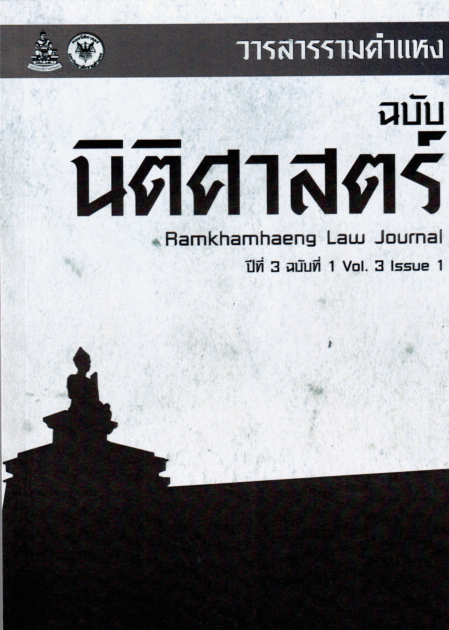ปัญหาทางกฎหมายเกี่ยวกับการจัดการขยะมูลฝอยโดยองค์การบริหารส่วนตำบล
Main Article Content
Abstract
กฎหมายที่กำหนดเกี่ยวกับการจัดการขยะมูลฝอยโดยองค์การบริหารส่วนตำบลมีอยู่หลายฉบับ ซึ่งใช้คำและกำหนดความหมายของขยะมูลฝอยแตกต่างกัน การแก้ไขปรับปรุงคำนิยามต้องใช้เวลานานทำให้ไม่สอดคล้องกับสถานการณ์ปัจจุบัน การจัดการขยะมูลฝอยมุ่งเน้นที่การกำจัดมากกว่าการป้องกันการเกิดเป็นขยะมูลฝอย และไม่มีกฎหมายกำหนดให้ประชาชนได้เข้ามามีส่วนร่วม จึงไม่สามารถลดปริมาณขยะมูลฝอยที่จะนำไปกำจัดได้การร่วมมือกันระหว่างท้องถิ่นในการแก้ไขปัญหาขยะมูลฝอย ก็ยังไม่มีกฎหมายหรือระเบียบรองรับและกำหนดแนวทาง จึงทำให้การร่วมมือระหว่างกันเกิดขึ้นน้อยมาก การกำหนดอัตราค่าธรรมเนียมในการจัดการขยะมูลฝอยซึ่งต้องเป็นไปตามพระราชบัญญัติการสาธารณสุข พ.ศ. 2535 และกฎกระทรวงก็ไม่สะท้อนต้นทุนที่แท้จริง และไม่เป็นตามหลักผู้ก่อมลพิษเป็นผู้จ่าย นอกจากนี้ การกำหนดให้ใช้มาตรการลงโทษทางอาญากับผู้ที่ฝ่าฝืนกฎหมายดังกล่าว ทำให้เกิดปัญหาในการบังคับใช้กฎหมายขององค์การบริหารส่วนตำบล
Legal Problems Concerning Waste Management By Sub district Administration Organizations
There are many laws regarding waste management by sub district administration organizations (SAOs) which differ only in wording and how “waste” is defined. Correcting and improving definitions which do not match current conditions is a time-consuming task. In any event, waste management at present focuses on the destruction of waste rather than controlling its production. Moreover, there are no legally binding requirements that citizens must participate in waste management. Therefore, these factors militate against lessening the amount of waste with which SAOs have to contend. Since there are no relevant laws or regulations governing cooperation in waste management, localities do not cooperate in waste management. Moreover, fee rates for waste management must be in consonance with Public Health Act, B.E. 2535 (1992) and corresponding ministerial regulations which do not reflect the actual cost and which do not incorporate the principle that those who generate pollution must pay for eliminating it. In addition, SAOs officials have close relationships with residents and therefore avoid applying criminal sanctions to residents who violate legal measures regulating waste disposal.

